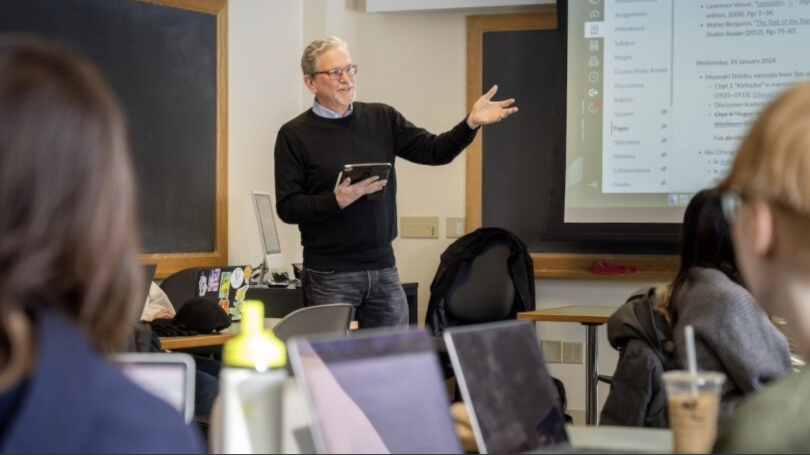
- Undergraduate
- Graduate
- News & Events
- People
Back to Top Nav
Back to Top Nav
Back to Top Nav
Beyond the LSA+ program, James Dorsey utilizes his research in several of his on-campus courses. Japanese folk songs have become a key component of Dorsey's translation courses, offering students a chance to engage in cultural analysis while practicing a more advanced approach to translation.
"The tendency when we translate is to look for one-to-one word equivalencies and follow mechanical grammatical formulas to transpose from Japanese to English," Dorsey says. "You can do that with prose and produce something that sounds kind of like English, but when it comes to song lyrics, you have to be more flexible and creative."
Dorsey challenges his students' skill and creativity by asking them to complete two versions of the chosen song.
"The first is a poetic translation, which is meant to capture the meaning and the spirit of the original lyrics," Dorsey says. "The second is a version that can be sung to the same melody. This creates another set of complications, which helps us polish our abilities to write in English."
Through the second translation, students follow in the footsteps of the artists Dorsey studies.
"It's an interesting project, because it's exactly what the Japanese folk singers of the 1960s were doing: Translating the songs they heard, having people try to sing them, and then polishing them," Dorsey says. "It's a fascinating collaborative effort."
Dorsey's research takes an even more prominent role in his course Social Revolutions East and West: Japan and America in the 1960s.
"Japan was very politically volatile in the 1960s," he explains. "It was very much like the United States in the same period, with student movements, anti-war demonstrations, and protests on college campuses."